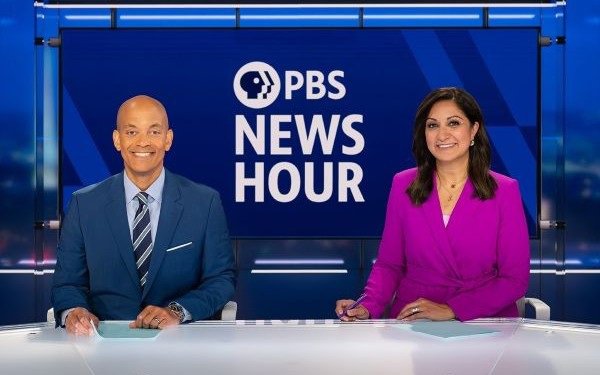
On the one hand, PBS has a long
list of signature long-running series that are among the best anywhere.
On the other hand, why should taxpayers foot the bill for them?
This is one of the “nutshell” questions now before us as public TV and radio are having an estimated $1.1 billion in government funding pulled out from under
them in Trump’s Big Beautiful Bill that he signed into law on July 4.
Arguments can be made for and against government support for public media --
embodied mostly by the best-known public broadcasting brands, PBS (Public Broadcasting Service) and NPR (National Public Radio).
Without this funding, are we
really in danger of losing “Nature,” “Nova,” “American Experience,” “American Masters,” “Finding Your Roots,” “Secrets of the
Dead” and “Antiques Roadshow”?
advertisement
advertisement
Without government largesse, who will pay for “Frontline,” “Newshour” and the
documentaries of “POV” and “Independent Lens”?
One answer might be: “Viewers Like You.” Those three words are seen at the
beginning and/or end of every PBS show.
Also bannered in the same places on every show: The names of
deep-pocketed donors -- individuals, couples, families, foundations and other non-profits.
These entities give a lot of money, but apparently it is never
enough, so PBS interrupts its regularly scheduled programs to bring you various other programs with lengthy breaks in which viewers like you are asked to give money.
These disruptions -- which are derided by many as “beg-a-thons” -- have been on the increase for years.
They are mainly showcases for musical acts from the 1960s and 1970s who are still beloved by nostalgic, aging baby boomers.
These fundraising shows often preempt the great PBS shows that PBS wants viewers like you to help pay for. These preemptions are frustrating.
Conservatives have long complained about PBS. They perceive a left-leaning bias in much of PBS’s programming, particularly in the areas of news and
documentaries.
The centerpiece of these complaints is “Newshour” with a little
“Frontline” thrown in.
As for other PBS content, these same critics keep a sharp eye out for
political correctness -- i.e., wokeness -- across the network’s lineup.
With this in mind, a bill in Congress with
near-unanimous Republican support that defunds public broadcasting can be seen as an effort to rein in liberal media on the grounds that these media, funded by the government, are not fair and
balanced.
To many people, PBS has a unique selling proposition. Generally speaking, it is that many PBS shows are a cut above the rest of television across
categories such as scripted drama (“Masterpiece”), documentary (Ken Burns), nature (“Nature”) and science (“Nova”).
Whether or not PBS is “better” than the rest is a matter of personal opinion. But high-quality nature documentaries are everywhere.
So
are shows on the pyramids, Pompeii, gorillas and sharks -- all subjects that are amply taken up all over the place.
Except for a handful of exceptions such as “Downton
Abbey,” the scripted dramas on “Masterpiece” are often no better or worse than scripted dramas on American networks and streaming services.
Many people like
“Newshour,” but here too, news is everywhere. And should a newscast be accepting monetary support from the government in the first place?
One would
think that if $1.1 billion is taken away from public TV and radio, then these media are going to have to cut back on something.
They could be shows, air personalities, layers of management, office space, real estate they either lease or own, or all of the above.
But how much should the rest of us care about the suffering of public broadcasting?
Yes, we would
lose a lot of great shows if PBS went away. But with all the choices we have today, how long would we miss them?